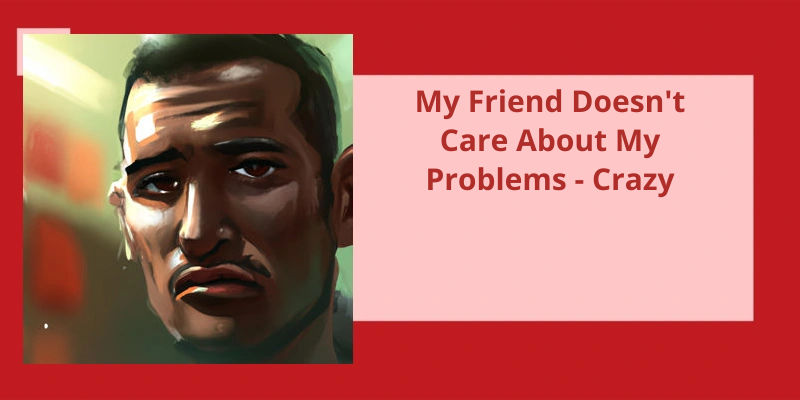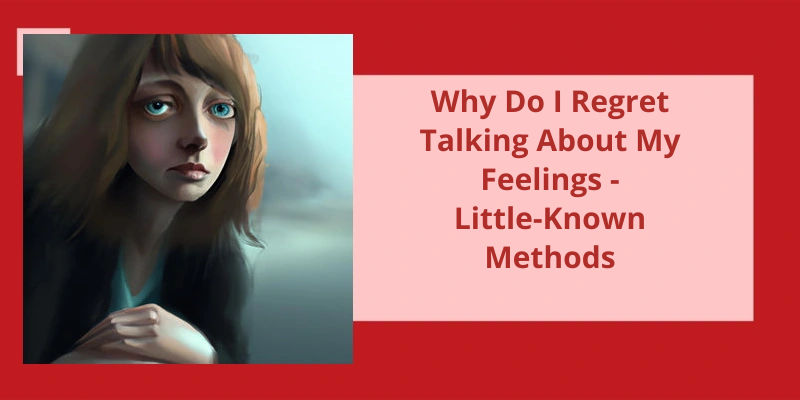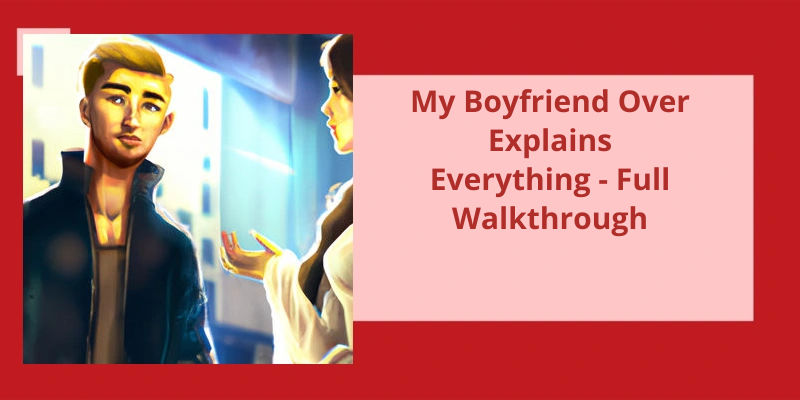Have you ever found yourself in a situation where you desperately needed someone to confide in, to share your struggles and worries with, only to discover that your friend doesn't seem to care about your problems? It can be incredibly frustrating and hurtful when the person you turn to for support not only brushes off your concerns but shows a complete lack of empathy or interest in your well-being. It's as if they live in a world of their own, seemingly indifferent to the chaos and difficulties you’re experiencing. This kind of apathy can leave you feeling isolated, unheard, and questioning the foundation of your friendship. How do you navigate this challenging dynamic? Is it possible to salvage the relationship, or is it time to reassess the value of such a friendship? In this article, we will delve into the complexities of dealing with a friend who doesn't seem to care about your problems, explore potential reasons for their behavior, and offer some strategies to cope with this situation.
What Are Signs Your Friend Doesn’t Care About You?
True friends prove to be reliable during hardships and support each other through thick and thin to the best of their ability. So, being too busy, citing excuses, or flaking out on you every time you need help or support is one of the unmistakable signs your friend doesn’t truly care about you. It’s understandable that people have busy lives, work commitments, and personal obligations. However, if your friend consistently prioritizes everything else over your needs, it might be a red flag. A caring friend will make an effort to be there for you, even if it means rearranging their schedule.
Another sign that your friend may not care about you is a lack of interest in your life. A true friend will want to know how you’re doing, whats happening in your life, and will actively engage in conversations about your interests and experiences. If your friend constantly redirects the conversation back to themselves, shows disinterest, or simply doesn’t listen when you talk, it’s a clear indication that they aren’t invested in your friendship. Genuine friendships are built on reciprocal interest and support.
Communication is a vital aspect of any relationship, and if your friend consistently ignores your calls, texts, and messages without any valid reason, it’s a sign that they may not value your friendship. While occasional lapses in communication are normal, if this becomes a recurring pattern, it can be hurtful and indicate a lack of care. A true friend will make an effort to stay in touch, even during busy periods, and will respond to your messages as soon as they can.
Sharing happy moments and achievements is a common practice between friends, as they genuinely want to celebrate each others successes. However, if your friend consistently downplays or dismisses your achievements, or simply doesn’t seem interested in acknowledging your accomplishments, it’s likely that they don’t truly care about you. A caring friend will be genuinely happy for you and will make an effort to celebrate your victories.
Lastly, if your friend is consistently undermining, criticizing, or belittling you, it’s a clear sign that they don’t truly care about your feelings or well-being. Friends should lift each other up, offer constructive feedback, and provide support. If your friend constantly brings you down or makes you feel inferior, it’s important to reassess the nature of your friendship. True friends should be a positive influence in your life and genuinely care about your happiness and self-esteem.
Signs of a Toxic Friendship and How to Handle It
A toxic friendship can be detrimental to your mental and emotional well-being. It’s essential to recognize the signs of toxicity so that you can take the necessary steps to handle the situation. Some common signs include constant criticism, a lack of support, manipulation, and disrespect.
If you notice these red flags in your friendship, it may be time to address the issue. Start by having an open and honest conversation with your friend about how their behavior is affecting you. Express your feelings and concerns calmly and assertively.
If your friend is unwilling to acknowledge their toxic behavior or make changes, it may be necessary to distance yourself from the friendship. Surround yourself with individuals who uplift and support you.
Remember, prioritizing your mental and emotional well-being is crucial. It’s okay to let go of toxic friendships for the sake of your own happiness and personal growth.
It isn’t uncommon for friends to keep their problems to themselves, leaving us wondering why they choose not to confide in us. One possible reason could be a lack of trust, fearing that sharing their struggles may lead to judgment or negative consequences. Additionally, they may worry about burdening us with their issues or causing us to overreact. It’s also possible that they prefer to handle their problems privately, keeping them within the confines of their own thoughts and emotions.
Why Does My Friend Not Tell Me Her Problems?
It can be disheartening when you realize that your friend doesn’t confide in you about their problems. However, it’s important to understand that there could be several reasons behind this behavior. One possible reason is that your friend doesn’t trust you enough to open up about their concerns. Trust is a crucial aspect of any relationship, and it takes time to build. It’s possible that your friend may not feel comfortable sharing their problems with you yet.
Some individuals prefer to handle their problems on their own, not wanting to impose their emotional baggage on others. They may fear that sharing their problems will only add to your own stress and problems. Hence, they choose to keep their struggles to themselves.
Moreover, your friend might believe that you’d overreact to their problems. Sometimes, people choose not to share their concerns because they fear that their friends would become excessively worried or over-dramatize the situation. They may worry that you may blow the problem out of proportion, causing unnecessary stress and anxiety. Therefore, keeping their problems to themselves seems like a safer option.
While your intentions may be genuine, they may prefer to keep their issues private and handle them in their own way. They might not want their problems to become public knowledge and would rather find solace by reflecting and resolving matters internally.
In some cases, individuals prefer to keep their problems between themselves. They might not feel the need to seek external input or advice from others, believing that they can handle their issues independently. It’s essential to recognize that this decision isn’t necessarily a reflection of your friendship. People have different ways of processing and dealing with their problems, and your friend might simply be more inclined towards self-reliance.
How to Set Healthy Boundaries in a Friendship to Ensure Both Parties Feel Comfortable Sharing Their Problems
- Communicate openly and honestly about your own boundaries
- Listen actively and validate each other’s feelings
- Respect each other’s privacy and personal space
- Avoid gossip and speak directly to resolve conflicts
- Set clear expectations and goals for the friendship
- Be willing to compromise and negotiate when needed
- Recognize and respect each other’s limits and needs
- Practice self-care and prioritize your own well-being
- Seek support from trusted friends or professionals when necessary
Source: Why do my friends never tell me their problems? – Quora
It’s important to communicate your feelings and set boundaries in any relationship. If your friends don’t seem to reciprocate the same level of care and effort, it may be time to address the situation. Letting them know your concerns and recognizing the impact it’s on you can open up a dialogue to determine the future of your friendship. Enduring one-sided relationships can be emotionally draining, so asserting your needs is crucial for your own well-being.
What to Do When Your Friends Don’t Care About You?
It’s important to communicate your feelings honestly and directly with your friend. Explain to them that you value and care about the friendship, but it’s becoming increasingly difficult to maintain when they don’t show the same level of effort or consideration. Let them know that it hurts when you constantly reach out and they don’t seem to care. By expressing your emotions, you give them the opportunity to understand how their actions – or lack thereof – affect you.
In addition to expressing your feelings, it’s crucial to make it clear that you won’t continue holding up the friendship alone. Let your friend know that you can’t keep investing time and energy into a one-sided relationship. It’s important for both parties to contribute to the friendship and show a genuine interest in one anothers lives. If your friend doesn’t understand how their lack of effort impacts the relationship, it may be necessary to distance yourself and reevaluate the friendship.
Setting boundaries is essential in any relationship, including friendships. If your friend consistently disregards your feelings and doesn’t make an effort to change their behavior, you may need to establish boundaries to protect yourself. This could involve limiting the amount of time and energy you invest in the friendship, or even taking a break from the relationship altogether. It’s important to prioritize your own well-being and surround yourself with people who genuinely care about you.
It can be difficult to accept that your friend doesn’t care about you in the same way you care about them. Remember, you deserve to be surrounded by people who appreciate and value you. Surrounding yourself with friends who reciprocate your efforts and genuinely care will bring more fulfillment and happiness to your life. It’s okay to let go of toxic friendships and nurture connections with people who truly support and care for you.
Identifying Signs of a Toxic Friendship
A toxic friendship can have a detrimental impact on your well-being and happiness. Identifying signs of a toxic friendship is crucial in order to protect yourself.
Some common signs of a toxic friendship include constant negativity and criticism, a lack of support or respect, jealousy and competition, and an imbalance in the give-and-take dynamic.
If your friend consistently puts you down or belittles your achievements, constantly creates drama, or drains your energy without reciprocating, it may be a sign of a toxic friendship.
Additionally, if you feel anxious, stressed, or unhappy after spending time with this person, it’s important to acknowledge the negative impact they’ve on you.
Recognizing these signs can help you make informed decisions about whether to distance yourself from the toxic friendship, set boundaries, or seek support from trusted individuals.
Conclusion
In a world where genuine connections are often overshadowed by the distractions of life, it’s disheartening to realize that my friend doesn't seem to care about my problems. Despite the crazy occurrences that life throws at us, it’s during these moments of vulnerability that we seek solace in the understanding and support of those we hold dear. However, when our confidantes fail to acknowledge or empathize with our struggles, it can leave us feeling isolated and unheard. The gravity of such circumstances shouldn’t be undermined, as it challenges the very essence of friendship and the bonds we hope to cultivate. It’s essential for friends to mutually invest in each other's emotional well-being, providing an oasis of compassion amidst the chaos. So, when my friend fails to express genuine concern for my troubles, it not only highlights their indifference, but also the absence of an essential pillar that holds our friendship together.






